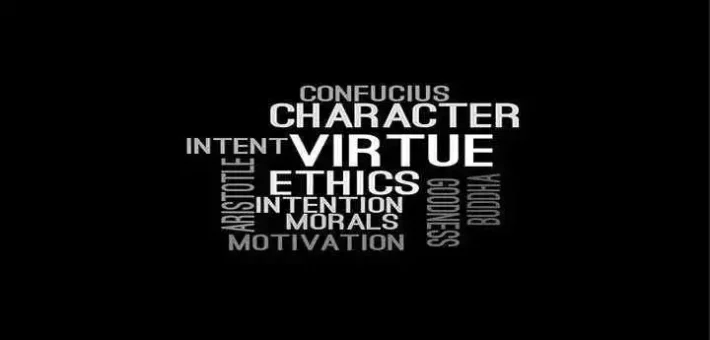Guidance for Standards I & II – CFA Ethics Standards Level 1 MCQs
When applicable law and the Code and Standards require different conduct, members and candidates must follow the more strict of the applicable law or the Code and Standards. Here in MCQs.club we have made easy and useful exam focus Multiple-Choice Questions (MCQs) on CFA Guidance for Standards I to VII that fully cover MCQs on cfa level i ethics, covering ethics syllabus, cfa standards of conduct, ethics summary. The MCQs are Your Cheat Sheet to CFA Level I: Ethical & Professional Standards. These ethics quiz is useful for Business management exams, competitive exams and professional accountancy exams.
Relationship between the Code and Standards and Applicable Law
- When applicable law and the Code and Standards require different conduct, members and candidates must follow the more strict of the applicable law or the Code and Standards.
- True
- False
- “Applicable law” – is the law that governs the member’s or candidate’s conduct.
- True
- False
- The “more strict” law or regulation – is the law or regulation that imposes greater restrictions on the action of the member or candidate or calls for the member or candidate to exert a greater degree of action that protects the interests of investors.
- The above statement is correct
- The above statement is incorrect
- The principles that CFA Members and candidates must adhere to include:
- Members and candidates must not engage in conduct that constitutes a violation of the Code and Standards, even though it may otherwise be legal.
- Members and candidates must comply with applicable laws or regulations related to their professional activities.
- Both A&B
- None
Participation in or Association with Violations by Others
- Which of the following is correct?
- Members and candidates are responsible for violations in which they knowingly participate or assist.
- CFA Institute acknowledges that members may not recognize violations if they are not aware of all the facts giving rise to the violations.
- Both A&B
- None
- Standard I(A) applies when members and candidates know or should know that their conduct may contribute to a violation of applicable laws, rules, or regulations or the Code and Standards.
- The above is correct
- The above is incorrect
- If a member or candidate has reasonable grounds to believe that imminent or ongoing client or employer activities are illegal or unethical, the member or candidate must_____________, from the activity.
- Dissociate
- Separate
- Both A or B
- None
- Members and candidates may take intermediate steps to dissociate from ethical violations of others including:
- to attempt to stop the behavior by bringing it to the attention of the employer through a supervisor or the firm’s compliance department.
- to step away and dissociate from the activity.
- Both A&B
- None
- Dissociation practices will differ on the basis of the member’s or candidate’s role in the investment industry. It may include:
- removing one’s name from written reports or recommendations
- asking for a different assignment
- refusing to accept a new client or continue to advise a current client.
- All of the above
Investment Products and Applicable Laws
- Which of the following is correct for CFA Members and candidates involved in creating or maintaining investment services or investment products or packages of securities and/or derivatives?
- They should be mindful of where these products or packages will be sold as well as their places of origination.
- Members or candidates should make reasonable efforts to review whether associated firms also abide by the laws and regulations of the countries and regions of distribution.
- They should undertake the necessary due diligence when transacting cross- border business to understand the multiple applicable laws and regulations in order to protect the reputation of their firm and themselves
- All of the above
- Which of the following is correct for CFA Member resides in country with no securities laws or regulations, does business in country with less strict securities laws and regulations than the Code and Standards;
- Member must adhere to the Code and Standards.
- Member must adhere to the law of country with more strict securities laws and regulations than the Code and Standards
- Both A&B
- None
- Which of the following is correct for CFA Member resides in country with no securities laws or regulations, does business in country with more strict securities laws and regulations than the Code and Standards;
- Member must adhere to the Code and Standards.
- Member must adhere to the law of country with more strict securities laws and regulations than the Code and Standards
- Both A&B
- None
- Suggested methods by which members and candidates can acquire and maintain understanding of applicable laws, rules, and regulations include:
- Stay informed
- Review procedures
- Maintain current files
- All of the above
- Identify which of the following policies and procedures CFA Members and candidates should encourage their firms to consider to support the principles of Standard I(A):
- Develop and/or adopt a code of ethics
- Provide information on applicable laws
- Establish procedures for reporting violations
- All of the above
Standard I(B) Independence and Objectivity
- Which of the following is correct with regard to Independence and Objectivity?
- Members and Candidates must use reasonable care and judgment to achieve and maintain independence and objectivity in their professional activities.
- Members and Candidates must not offer, solicit, or accept any gift, benefit, compensation, or consideration that reasonably could be expected to compromise their own or another’s independence and objectivity.
- Both A&B
- None
- Members who allow their investment recommendations or analysis to be influenced by such pressure or inducements will have violated the requirement to use reasonable care and to maintain independence and objectivity in their professional activities.
- The above is correct
- The above is incorrect
- Allocating shares in oversubscribed IPOs to personal accounts is an example of violation.
- True
- False
- Which of the following is correct?
- Normal business entertainment is permitted.
- Gifts from clients are considered less likely to compromise independence and objectivity than gifts from other parties.
- Client gifts must be disclosed to the member’s employer prior to acceptance, if possible, but after acceptance, if not.
- All of the above
- Which of the following is a violation of the Standard?
- Preparing reports paid for by the subject firm if compensation is a flat rate not tied to the conclusions of the report.
- Accepting compensation that is dependent on the conclusions, recommendations, or market impact of the report, and failure to disclose that research is issuer-paid.
- Both A&B
- None
- Members or their firms should pay for their own travel to company events or tours when practicable and limit use of corporate resources.
- True
- False
- What are the Recommendations for Firms as described in Standard I(B) Independence and Objectivity?
- Restrict employee participation in IPOs and private placements, require pre-approval for participation.
- Appoint a compliance officer, have written policies on independence and objectivity and clear procedures for reporting violations.
- Limit gifts, other than from clients, to token items only.
- All of the above
Standard I(C) Misrepresentation
- Members and Candidates must not knowingly make any misrepresentations relating to:
- investment analysis
- recommendations
- actions, or other professional activities.
- All of the above
- Misrepresentation includes:
- knowingly misleading investors
- omitting relevant information
- presenting selective data to mislead investors, and plagiarism
- All of the above
- Plagiarism – is using reports, forecasts, models, ideas, charts, graphs, or spreadsheets created by others without crediting the source.
- True
- False
- Crediting the source is not required when using projections, statistics, and tables from recognized financial and statistical reporting services.
- True
- False
- When using models developed or research done by other members of the firm, it is permitted to omit the names of those who are no longer with the firm as long as the member does not represent work previously done by others as his alone.
- The above is correct
- The above is incorrect
- Actions that would violate the Standard I(C) include:
- Offering false or misleading information about the analyst’s or firm’s capabilities, expertise, or experience.
- Selecting a performance benchmark that is not comparable to the investment strategy employed.
- Using marketing materials from a third party (outside advisor) that are misleading.
- All of the above
- What are the Recommendations for Members as described in Standard I(C) Misrepresentation?
- Keep copies of all reports, articles, or other materials used in the preparation of research reports.
- Prepare a summary of experience, qualifications, and services a member is able to perform.
- Both A&B
- None
Standard I(D) Misconduct
- Members and Candidates must not engage in any professional conduct involving ______________that reflects adversely on their professional reputation, integrity, or competence.
- Dishonesty
- Fraud
- Deceit or commit any act
- All of the above
- What are the Recommendations for Firms as described in Standard I(D) Misconduct?
- Develop and adopt a code of ethics and make clear that unethical behavior will not be tolerated.
- Give employees a list of potential violations and sanctions, including dismissal.
- Check references of potential employees.
- All of the above
STANDARD II: INTEGRITY OF CAPITAL MARKETS
Standard II(A) Material Nonpublic Information
- Members and Candidates who possess material nonpublic information that could affect the value of an investment must not act or cause others to act on the information.
- The above is correct
- The above is incorrect
- Information is “material” if its disclosure would affect the price of a security or if a reasonable investor would want the information before making an investment decision.
- True
- False
- Information that is ambiguous as to its likely effect on price may not be considered material.
- True
- False
- Which of the following is correct?
- Information is “nonpublic” until it has been made available to the marketplace.
- An analyst conference call is not public disclosure.
- Selective disclosure of information by corporations creates the potential for insider-trading violations.
- All of the above
- What are the Recommendations for Members as described in Standard II(A) Material Nonpublic Information?
- Make reasonable efforts to achieve public dissemination by the firm of information they possess.
- Encourage their firms to adopt procedures to prevent the misuse of material nonpublic information.
- Both A&B
- None
- What are the Recommendations for Firms as described in Standard II(A) Material Nonpublic Information?
- Review employee trades.
- Maintain “watch,” “restricted,” and “rumor” lists.
- Both A&B
- None
Standard II(B) Market Manipulation
- Members and Candidates must not engage in practices that distort prices or artificially inflate trading volume with the intent to mislead market participants.
- The above statement is correct
- The above statement is incorrect
- Which of the following is correct?
- Member actions may affect security values and trading volumes without violating the Standard.
- If there is the intent to mislead, then the Standard is violated.
- Spreading false information to affect prices or volume is a violation of the Standard.
- All of the above
—more to come soon—
Read more
Read more
Read more
Read more
Read more




